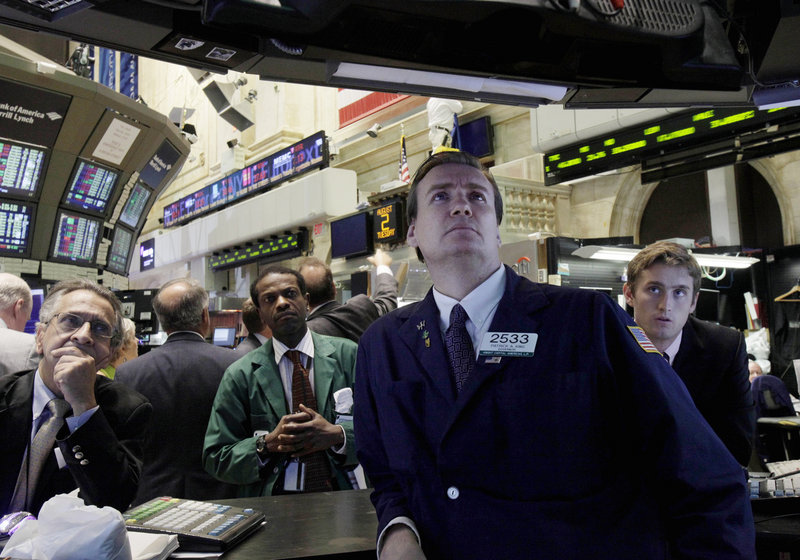The stock market is on its longest losing streak since the financial meltdown of 2008, confronted almost every day by fresh evidence that the economy is in serious trouble again.
The Dow Jones industrials declined more than 265 points Tuesday, their worst day in more than two months, and closed below 12,000 for the first time since June 24.
Investors sold all day after a report that the economy, which is barely growing and straining to produce jobs, is getting almost no help from consumer spending. Americans saved more in June and spent less for the first time in almost two years.
The big declines in the stock market came despite the formal end of weeks of uncertainty over whether Congress would raise the federal government’s borrowing limit.
President Barack Obama signed into a law a bill that raises the debt ceiling and promises more than $2 trillion in cuts to government spending over the next decade. The bill was passed by the House on Monday and by the Senate earlier Tuesday.
But investors were more worried about the economy, and the sell-off only accelerated. It was the eighth consecutive daily drop for the Dow and seventh for the Standard & Poor’s 500 index, in both cases the longest since October 2008.
During its eight-day decline, the Dow has lost 858 points, or 6.7 percent. The average closed at 11,866.62. The S&P 500 closed at 1,254.05, and is now down slightly for the year.
“You need to see demand and you need to see growth in the economy, and we’re just not seeing enough of it,” said Nick Kalivas, a vice president of financial research at MF Global.
The spending decline in June came after a report last week that the economy grew at an annual rate of less than 1 percent in the first six months of the year — the slowest since the end of the Great Recession in June 2009.
Tuesday’s report showed that by June, Americans had only grown more cautious. They are faced with high unemployment, stagnant pay, sliding home values and other challenges.
“With gasoline prices high, incomes not growing and the craziness in Washington creating uncertainty, is it any surprise that people stopped spending?” asked Joel Naroff, chief economist at Naroff Economic Advisors.
The government said consumer spending dropped 0.2 percent in June. It was the first decline since September 2009. Consumer spending fuels about 70 percent of economic growth.
Part of the drop was because food and energy prices have declined a little after sharp increases earlier this year. Gasoline, for example, costs about $3.70 a gallon after the national average flirted with $4 earlier this year.
But Americans also cut back on major goods, such as cars, furniture and appliances. Those purchases help drive growth.
Incomes, which include Social Security checks and other government benefit payments, rose just 0.1 percent. That was the smallest gain since September. Wages and salaries fell.
People socked away more of their payments, perhaps because of increasing worries about the economy and job security. The personal savings rate rose to 5.4 percent of after-tax incomes, the highest since August 2010.
Send questions/comments to the editors.



Success. Please wait for the page to reload. If the page does not reload within 5 seconds, please refresh the page.
Enter your email and password to access comments.
Hi, to comment on stories you must . This profile is in addition to your subscription and website login.
Already have a commenting profile? .
Invalid username/password.
Please check your email to confirm and complete your registration.
Only subscribers are eligible to post comments. Please subscribe or login first for digital access. Here’s why.
Use the form below to reset your password. When you've submitted your account email, we will send an email with a reset code.